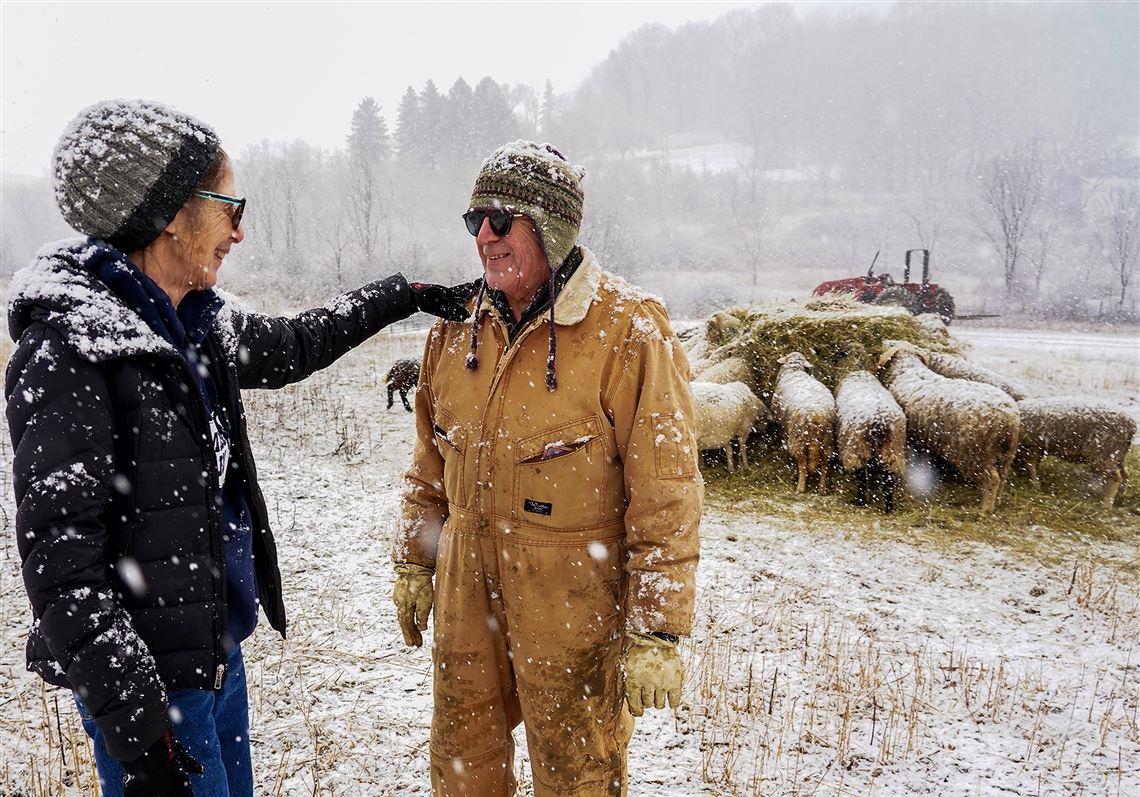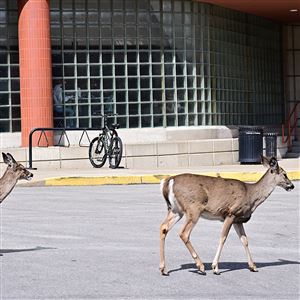After 45 years in business, the first 10 just for fun, Jamison Farm is closing down operations.
Owners John and Sukey Jamison had provided the Latrobe farm’s grass-finished lamb to some of the best restaurants and well-known chefs across the country for decades. But all that is coming to end in the next few weeks. And, yes, COVID-19 is at least partially responsible.
“I know, it’s terrible,” Mr. Jamison said. But sales to restaurants — which account for 60 percent of the business — have pretty much evaporated during the pandemic, and the Jamisons aren’t sure when, or even whether, the industry will bounce back.
While some restaurants have been buying here and there for takeout during the pandemic, it’s not been enough to make the business a go, he said. The farm’s last major shipment was March 14, to Jose Andres’ Zaytinya in Washington, D.C.
“I don’t think people realize how bad the restaurant situation is,” the 73-year-old farmer said. He likens it to the dismal period after Sept. 11 and during the recession of 2008-2009.
While the couple has been thinking of retiring for at least a couple of years, he said they were hoping to do so after they found someone else to take over the business.
So far, that buyer hasn’t materialized. “And who knows if restaurants are coming back anytime soon, and what will they look like?” he said.
In normal times, the Jamisons had between 200 and 400 lambs on the farm depending on the season, or upward of 4,000 a year. Last year, the number dwindled to between 50 and 100 lambs until mid-December, when the flock was slaughtered for the holidays.
After COVID-19 hit in March, they were able to get through Easter in fairly good shape “because that’s a big time for lamb,” he said. Even after a brief shutdown in May, they remained hopeful the industry would snap back. But a renewed demand for lamb never materialized.
“It’s one of the last things chefs put on a menu because it’s not inexpensive,” Mr. Jamison said. “We’re at the end of the line.”
Cory Hughes, who opened Fig & Ash on Pittsburgh’s North Side in October, got the news Monday, when he called the farm to check on an order.
Sukey Jamison couldn’t stop crying, he said, “and when Sukey cries, the whole office cries.”
“We get so emotional, it’s been hard to get the word out,” Mr. Jamison said.
Even though he knew the Jamisons were on the verge of retirement, the news they were actually closing, Mr. Hughes said, put a hole in the hearts of a lot of chefs in Pittsburgh.
“It’s devastating,” he said. Whenever he bought lamb during the past 17 years, be it for the kitchens he ran at Google, Spoon or Cafe at the Frick, it was always from the Jamisons.
Jamison lamb also was featured on menus at Eighty Acres Kitchen & Bar in Plum, The Whitfield in East Liberty and Bitter Ends Luncheonette in Bloomfield.
Long considered one of the top five lamb producers in the country, Jamison lamb was served at Le Bernardin, Blue Hill and Frenchette in New York City, Blue Hill restaurants at Stone Farms in Pocantico Hills, NY., Bacchanalia in Atlanta, Alinea in Chicago and perhaps most famously, Jean-Louis at The Watergate Hotel in Washington, D.C.
Mr. Jamison said chef Jean-Louis Palladin, who he met in 1988, was probably the most important chef he supplied over the years, not to mention the one who made him famous.
Mr. Palladin was looking to serve lamb for a congressional lunch. He found Jamison’s lamb so beautiful when the couple took it to his tiny kitchen, he started to cry.
“He said it was a souvenir of his youth,” Mr. Jamison recalled.
The chef then asked, “How big do you want to get, and told everyone to buy from me,” Mr. Jamison said. They remained lifelong friends.
Julia Child also was a fan. The Jamisons would send her big legs of lamb for her birthday and for Easter, and she would reciprocate with her autographed cookbooks.
Another luminary customer was Anthony Bourdain. They supplied their lamb to Brasserie Les Halles in New York when he was chef there in the late 1980s.
Going forward, he plans to continue to operate the USDA-approved meat processing facility that he bought in 1994 in Westmoreland County. It processes beef from producers such as Pittsburgher Highland Farm in Mt. Pleasant.
Running the plant under strict USDA guidelines “has its moments,” he said. But there is so much interest now in locally produced meat and small-scale slaughterhouses, it makes sense to keep at it, especially since they were at the forefront of the farm-to-table movement. “We started when everyone sold their animals at auction,” he said, “and no farm cared about quality like they do now.”
He knows his customers will find the news about the farm upsetting, and he’s grateful they’ve been so faithful for so many years. Some, he said, would order as many as 20 boxes of meat for their friends and family during the holidays.
To that end, the farm will continue to sell a limited supply of its prepared products like lamb pies, lamb barley soups, stews and sausages for another couple of weeks, until it is exhausted. He may also follow up the publication of the Jamisons’ cookbook, “Coyotes in the Pasture and Wolves at the Door,” (Word Association Publishers; 2018) with more writing.
The Jamisons have not decided what to do with the current ewe flock of 150 after they give birth in May.
“It just all depends on what’s happening,” he said.
And then?
“We’re going back to where we started, which is two people who farm cheap.”
Gretchen McKay: gmckay@post-gazette.com, 412-12623-1419 or on Twitter @gtmckay.
First Published: January 15, 2021, 10:36 a.m.

















